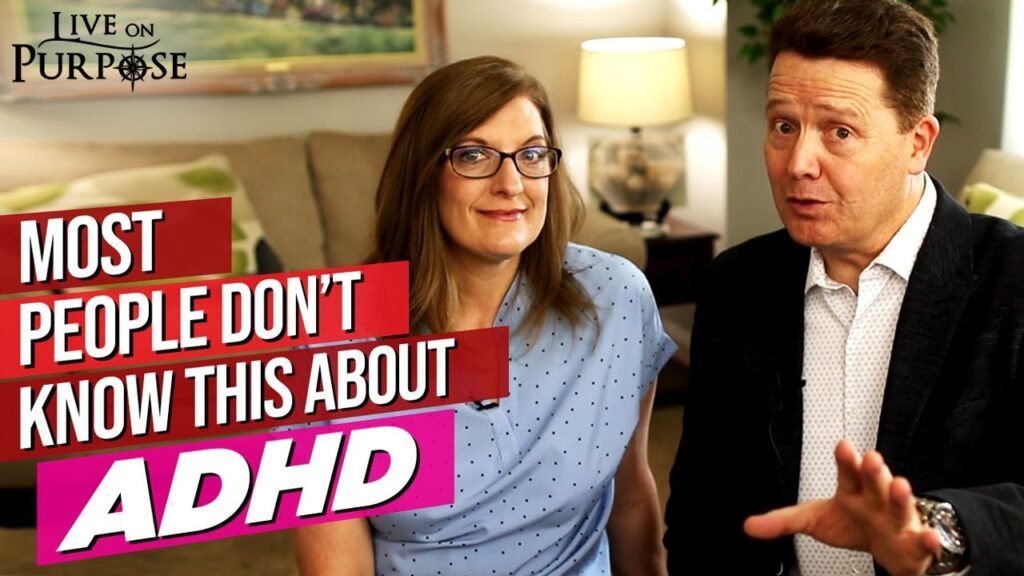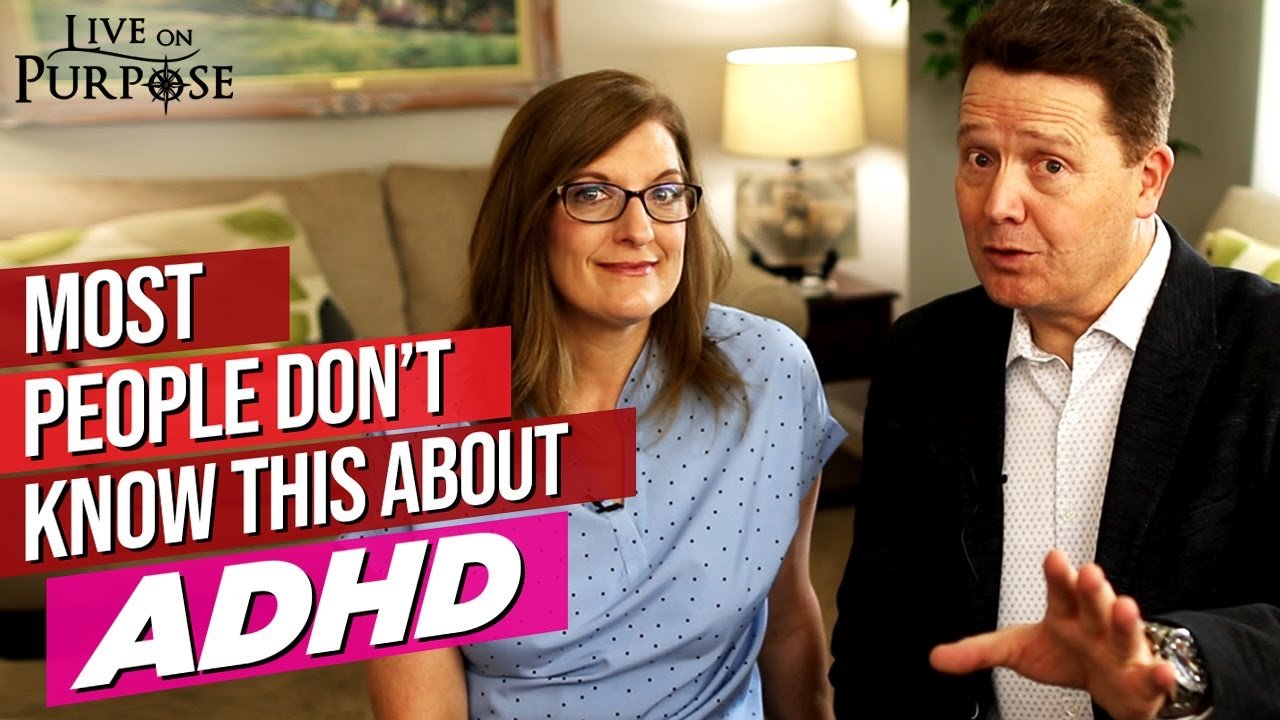In this article, we will address the issue of overdiagnosing ADHD in children, which often leads to mislabeling energetic kids as having ADHD. We will discuss the fact that ADHD is a behavioral diagnosis, not determined by a blood test, and explore different techniques for helping children with ADHD regulate their behavior. From breaking tasks into smaller steps and using picture lists to teaching empathy and letting consequences teach children, we will provide practical tips for parents. Ultimately, the goal is to foster independence, self-regulation, and success for children with ADHD or high energy levels.
In today’s episode, we will focus on how to help children with ADHD, while also acknowledging that these tips will be useful for children who are simply energetic. ADHD has indeed been overdiagnosed, which can be a problem. However, rather than dwelling on this issue, let’s delve into strategies that can assist children in regulating their behavior. We will start by discussing the importance of breaking tasks into manageable steps and using picture lists as visual aids. Additionally, we will explore the significance of parents backing off and letting consequences be the teachers, as well as responding to children’s actions with empathy rather than anger. By incorporating these techniques into parenting, we can empower children with ADHD or high energy levels to learn from their experiences, foster independence, and achieve success.

Introduction
ADHD, or Attention Deficit Hyperactivity Disorder, has become a more common diagnosis among children. However, one of the main concerns is the overdiagnosis of ADHD, leading to some children being labeled as having ADHD when they are actually just energetic. It’s important to understand that ADHD is a behavioral diagnosis and is not determined by a blood test. In this article, we will explore ADHD, its symptoms, misconceptions, and the importance of accurate diagnosis.
Understanding ADHD
ADHD is a neurological disorder that is characterized by symptoms such as inattention, hyperactivity, and impulsivity. It affects both children and adults and can have a significant impact on daily life. Symptoms of ADHD include difficulty focusing, trouble staying organized, forgetfulness, and excessive fidgeting or restlessness. It’s important to note that ADHD is a real disorder and not simply a result of laziness or a lack of discipline.
Misconceptions about ADHD can lead to misunderstandings and incorrect assumptions. One common misconception is that ADHD is only a problem with hyperactivity. While hyperactivity is a common symptom, it’s important to understand that individuals with ADHD can also struggle with inattention and impulsivity. Another misconception is that ADHD only affects children. In reality, ADHD can persist into adulthood and can continue to impact daily functioning.
Accurate diagnosis is essential when it comes to addressing ADHD effectively. There are criteria set by professionals that must be met for a diagnosis of ADHD. It is important to involve a qualified healthcare professional in the diagnosis process to ensure that an accurate evaluation is done. This can involve assessments, interviews, and observations to determine if ADHD is present.
The Problem of Overdiagnosis
Overdiagnosis of ADHD has become a significant concern, with an increasing number of children being labeled as having ADHD when they may not actually meet the diagnostic criteria. Statistics show that rates of ADHD diagnosis have been steadily rising over the years. There are several potential reasons for this overdiagnosis, including increased awareness of ADHD, pressure from parents and schools for quick solutions to behavioral challenges, and the potential for misinterpretation of symptoms. Overdiagnosis can have consequences, such as unnecessary medication use, stigmatization of children who are misdiagnosed, and a lack of appropriate interventions for those who truly have ADHD.
Differentiating ADHD from Energetic Behavior
It can sometimes be challenging to differentiate between ADHD and simply being energetic. Energetic behavior in children is a normal part of development, and many children naturally have higher activity levels. However, there are key differences between ADHD and energetic behavior to consider. Children with ADHD typically exhibit consistent symptoms of inattention, hyperactivity, and impulsivity, while energetic behavior may occur in bursts and is often related to specific situations or environments. It’s important to rely on proper evaluations and assessments to differentiate between ADHD and energetic behavior.
The Role of Medications
Medications are often used to treat ADHD, with stimulants being the most commonly prescribed. These medications help to regulate certain neurotransmitters in the brain, improving focus and impulse control. While medications can be beneficial for individuals with ADHD, it’s important to carefully consider their use and seek professional guidance. Medication should not be the sole intervention for managing ADHD but should be part of a comprehensive treatment plan that may include behavior strategies and other supports.
Alternative Techniques for Managing ADHD
In addition to medication, there are alternative techniques and strategies that can help manage ADHD symptoms. Behavioral strategies can be effective in helping children with ADHD. These strategies may involve setting clear expectations and rules, providing structure and routine, and utilizing positive reinforcement for desired behaviors. Task regulation is also important, as breaking tasks into smaller, more manageable steps can help individuals with ADHD stay focused and organized. Picture lists can also aid memory and serve as visual reminders of what needs to be done.
When it comes to parenting children with ADHD, the approach should focus on consequences rather than constant nagging or reminding. Providing clear consequences for actions, both positive and negative, can help children learn from their choices and develop self-regulation skills. Responding with empathy is also important, as it helps children feel understood and supported.
Teaching Self-Regulation Skills
Teaching self-regulation skills is crucial for children with ADHD. These skills help individuals manage their behaviors and emotions and can greatly improve their daily functioning. Teaching self-regulation takes repetition and practice, as it involves learning to recognize and regulate impulses, emotions, and attention. Strategies for teaching self-regulation skills can include practicing mindfulness and deep breathing exercises, using visual cues or timers to set boundaries, and providing opportunities for sensory breaks and physical activity.
Empowering Children with ADHD
It’s important to give children with ADHD a chance to be successful and develop their independence. Trusting children to learn from their experiences is powerful and promotes self-regulation. Avoiding the temptation to constantly bail children out when they face challenges can help foster their growth and development. Promoting independence and self-regulation can involve providing opportunities for decision-making, setting age-appropriate responsibilities, and guiding children towards problem-solving rather than offering immediate solutions.
Conclusion
In conclusion, ADHD is a complex neurological disorder that requires accurate diagnosis and appropriate interventions. Overdiagnosis of ADHD can have significant consequences and it’s important to rely on thorough evaluations by qualified professionals. Differentiating between ADHD and energetic behavior is crucial, and the role of medication should be carefully considered and guided by professionals. Alternative techniques for managing ADHD, teaching self-regulation skills, and empowering children with ADHD all play a vital role in helping them thrive and succeed.
Closing Remarks
Thank you for taking the time to read this comprehensive article on helping children with ADHD. As a fellow parent, I understand the challenges that come with raising children, especially those with ADHD. Together, we can continue to support and facilitate the growth and development of our children. If you’d like to connect further, feel free to follow us on Instagram and Facebook at parentingpowerup.com. We are honored to be part of the parenting team and are here to offer guidance and encouragement along the way.

